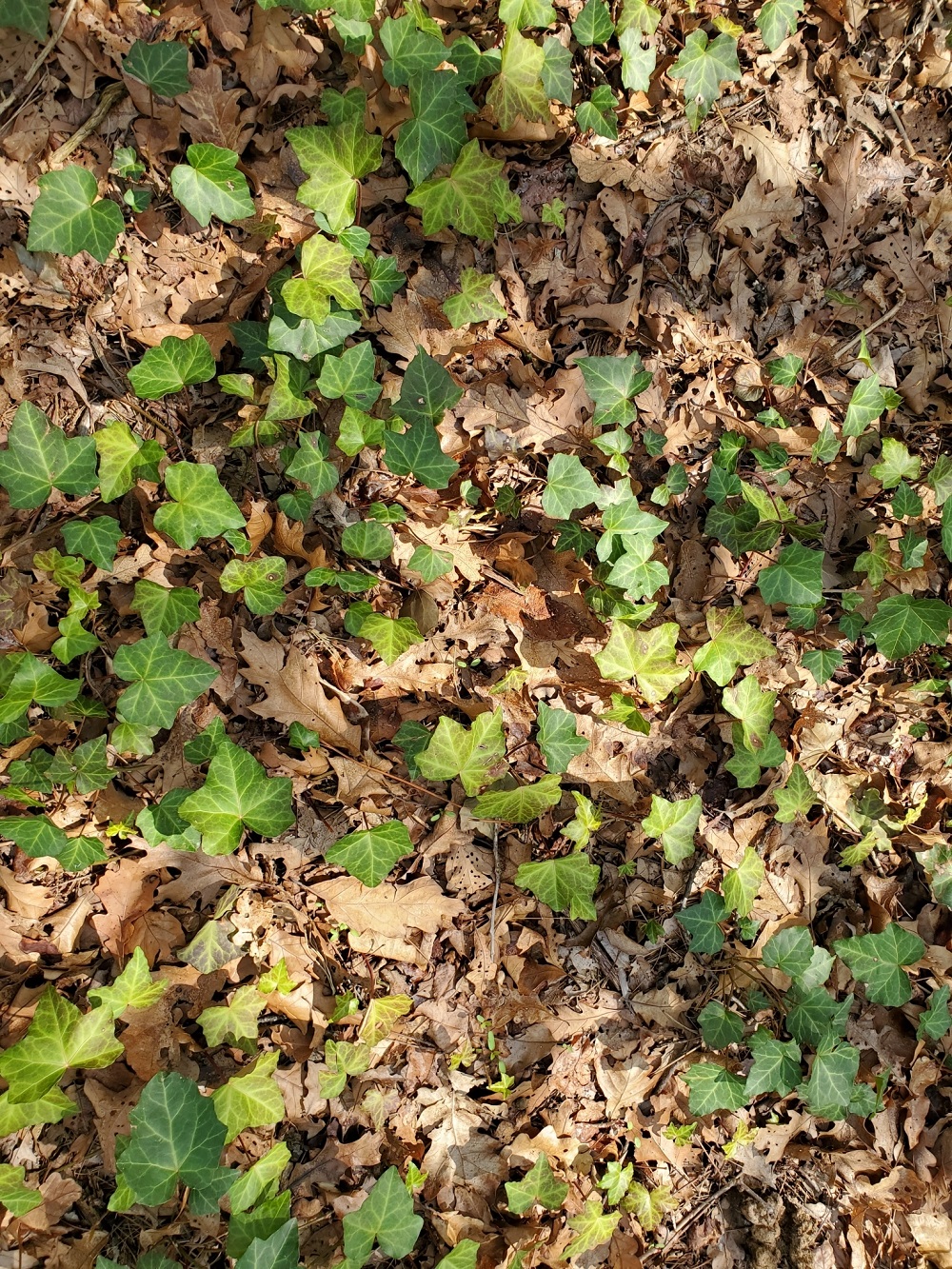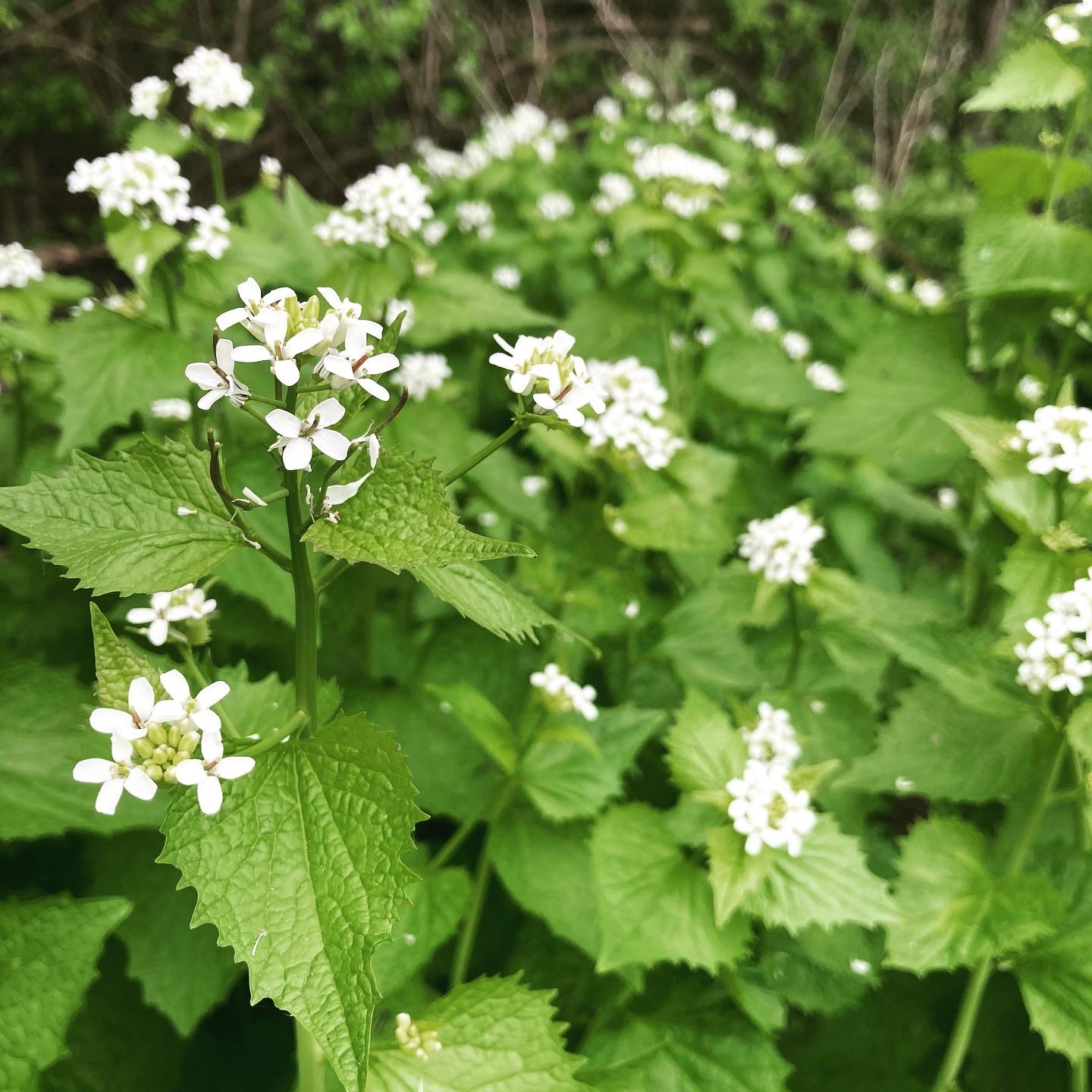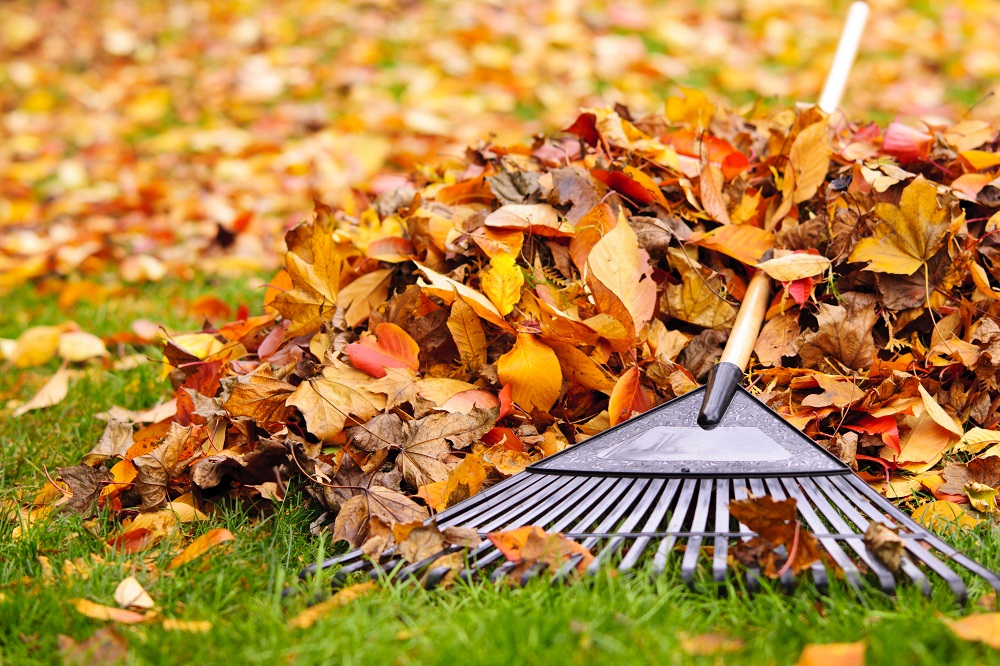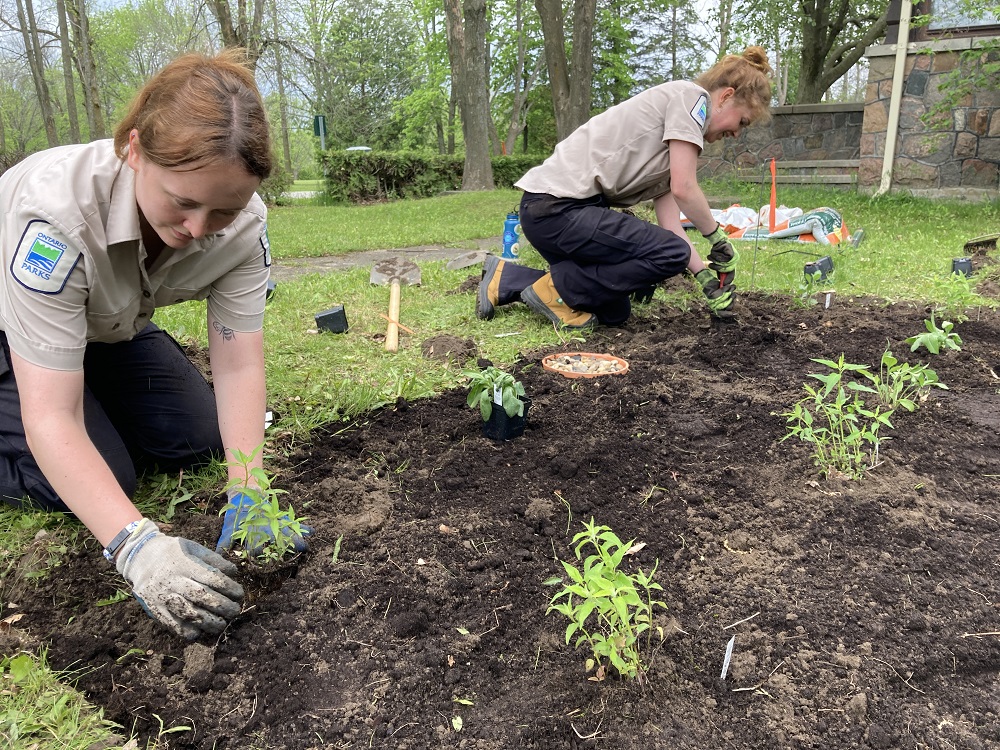You’ve finished cleaning up your yard and now have a pile of branches and leaves to dispose of.
Sending organic materials to the dump may cost you money and increases the amount of methane released into the atmosphere.*
Wouldn’t it make sense to take it to a local green space to decompose naturally?
While we understand how people might think this is a good idea, yard waste that has been dumped in our protected areas puts park habitats at risk.
Read on to find out why.
Invasive species
Many common garden plants are invasive species.

These include:
- Common Ivy (Hedera helix)
- Periwinkle (several species in the genus Vinca)
- Garlic Mustard (Alliaria petiolate),
- Common Reed (Phragmites australis)
- Japanese Barberry (Berberis thunbergii)
- Autumn Olive (Elaeagnus umbellata)
- Tree of Heaven (Ailanthus altissima)
And many others.
Even if your yard waste is primarily grass clippings and tree branches, it may be contaminated by other yard plants.
Just a few seeds or plant cuttings can introduce one of these invaders to new areas.

Once they gain a foothold, invasive plants can outcompete native species, shrinking native plant populations, and reducing food and cover for animals.
Invasive plants harm the ecological integrity of our parks.
Invasive flowering plants also lure pollinators away from native species and don’t provide what larval insects need to reach adulthood.
Dog Strangling Vine (also known as European Swallow-wort, Vincetoxicum rossicum), for example, is closely related to Common Milkweed.
Monarch Butterflies are often duped into laying their eggs on the imposter species, which does not provide the nutrition Monarch caterpillars need. Many young Monarchs die because we have allowed the invasive Dog Strangling Vine to spread in Ontario.

Even if your yard waste doesn’t contain invasive species, dumped materials can damage habitats directly by smothering the plants beneath.
Normal-looking areas can be home to rare species of plants and animals, so it’s important to dispose of yard waste elsewhere.
Yard waste is damaging to our park ecosystems, which is why Ontario has laws in place to protect our provincial parks. Dumping yard waste in a park can result in a fine.
Penalties for offenses under the Provincial Parks and Conservation Reserves Act, 2006 can vary from $125.00 to $50,000 and imprisonment for up to one year for a first offence, or $100,000 and imprisonment for up to two years if the offence was committed for commercial purposes. Minimum fines do not include court costs or victim fine surcharges
So what’s the best way to dispose of yard waste?
If you have a backyard and a manageable amount of material, the best thing to do with yard waste is to compost it on your own property using a compost bin.
When green material (fresh grasses and leaves) is combined with brown material (fallen leaves, branches, dried grasses) and kitchen vegetable waste, you can create excellent soil for your yard and garden.

If you are disposing of invasive species, make sure to handle them as the Ontario Invasive Plants Centre instructs. Often, this involves placing them into a black plastic bag and leaving them in a sunny place for a week to kill the seeds.
If you have too much yard waste or don’t have enough backyard space for composting, many municipalities collect these materials for industrial composting. Check with your own municipality for drop-off sites or pickup options. If you are pulling up invasive species, keep them separate from your normal yard waste, and learn how your municipality disposes of this special type of yard waste.
If you’d like to do even more to protect Ontario’s biodiversity, consider making your yard an invasive species-free zone!

Even if you don’t dump yard waste, invasive plants can be spread by plants, animals, or in the treads of your shoes.
The Ontario Invasive Plants Centre has resources to help you effectively remove populations of invasive plants on your property, and suggestions of what to plant instead.
Share this information with the gardeners and lawn owners in your life!
Disposing of yard waste properly and preventing the spread of invasive plants is an important way to protect our parks.
*As organic materials decompose in oxygen-free environments like landfills, they produce methane, a potent greenhouse gas that contributes to climate change. For more information, visit: https://www.ontario.ca/page/food-and-organic-waste-framework
